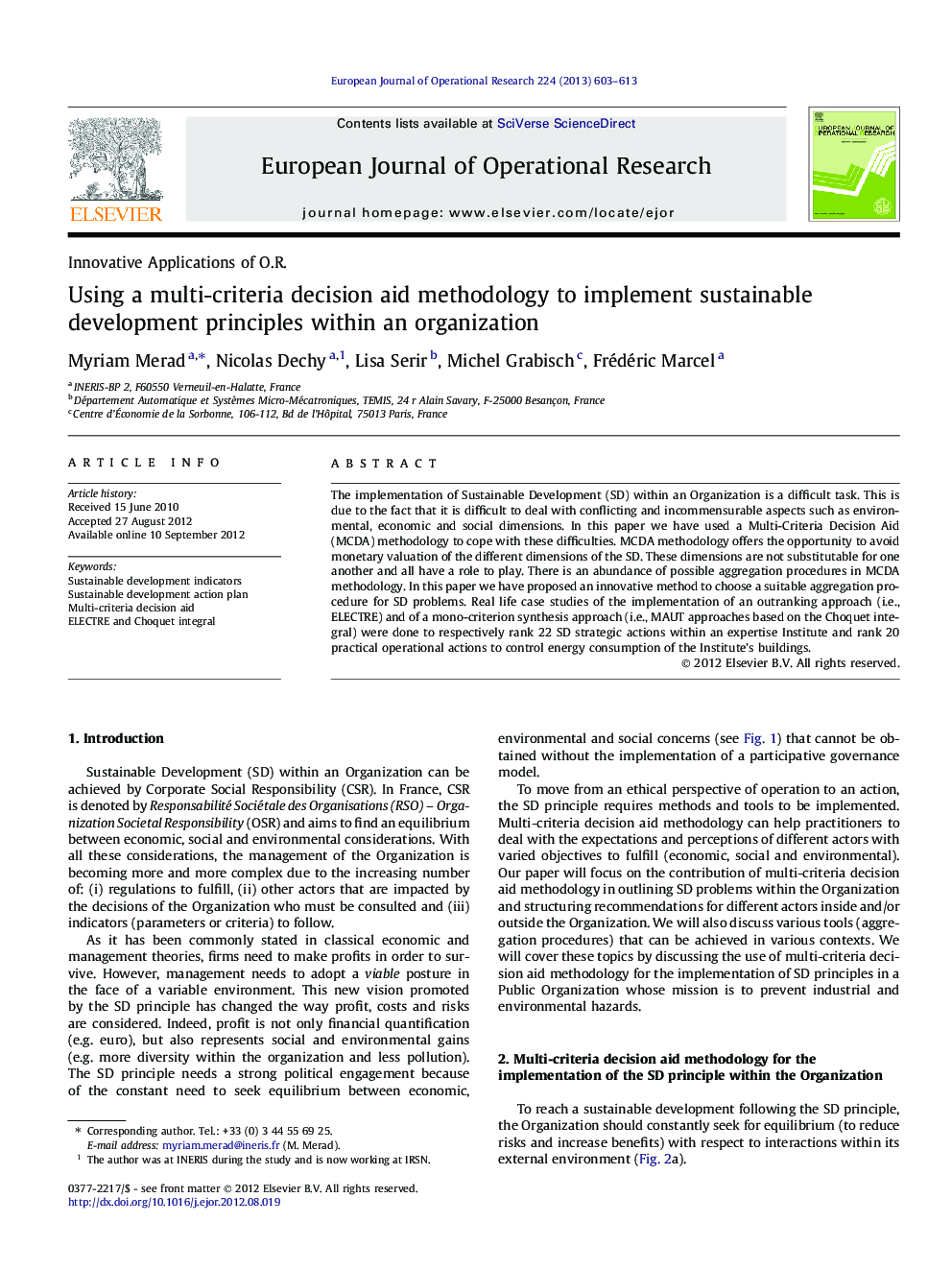| Article ID | Journal | Published Year | Pages | File Type |
|---|---|---|---|---|
| 480092 | European Journal of Operational Research | 2013 | 11 Pages |
The implementation of Sustainable Development (SD) within an Organization is a difficult task. This is due to the fact that it is difficult to deal with conflicting and incommensurable aspects such as environmental, economic and social dimensions. In this paper we have used a Multi-Criteria Decision Aid (MCDA) methodology to cope with these difficulties. MCDA methodology offers the opportunity to avoid monetary valuation of the different dimensions of the SD. These dimensions are not substitutable for one another and all have a role to play. There is an abundance of possible aggregation procedures in MCDA methodology. In this paper we have proposed an innovative method to choose a suitable aggregation procedure for SD problems. Real life case studies of the implementation of an outranking approach (i.e., ELECTRE) and of a mono-criterion synthesis approach (i.e., MAUT approaches based on the Choquet integral) were done to respectively rank 22 SD strategic actions within an expertise Institute and rank 20 practical operational actions to control energy consumption of the Institute’s buildings.
► There is rarely an optimal solution in Sustainable Development (SD). ► MCDA methodology offers the opportunity to avoid monetization of the different dimensions of the SD. ► We have proposed a method to choose an adequate aggregation procedure for SD problems. ► We have implemented two aggregation procedures to rank SD actions within a public Organization: ELECTRE III and MAUT.
